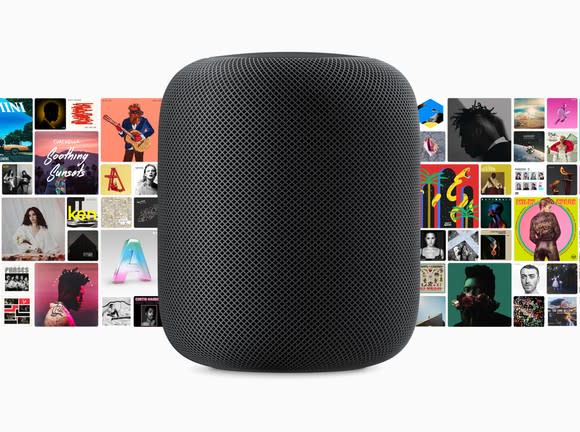Spotify Is About to Start Making Hardware
Last April, Spotify put up a job listing suggesting that it was planning to explore making hardware. At the time, the leading music streaming service was looking for a hardware-oriented product manager that would allow users to access Spotify "via fully connected hardware devices." The company took the posting down after inadvertently creating a speculative news cycle.
Now another Spotify hardware-related job posting has surfaced.

Spotify may be looking to challenge Apple's HomePod. Image source: Apple.
Hardware help wanted
First reported by MusicAlly, Spotify is now looking for an operations manager for a hardware product. "Spotify is on its way to creating its first physical products and setting up an operational organisation for manufacturing, supply chain, sales & marketing," the listing says. The role will oversee hardware operations, including managing forecasting, demand, inventory, and supply chain needs.
The company has partnered with many companies that make third-party audio products that integrate with Spotify but has never made a physical product before. Spotify lacks this core expertise that will be essential for launching its first physical product. There are no other clues within the listing as to what type of product Spotify is looking to create, but it doesn't take a lot of imagination to figure that part out.
It has to be a smart speaker
Smart speakers are all the rage, and 2018 is shaping up to be a pivotal year for the product category as consumer adoption continues to rise unabated. The global smart speaker market is expected to reach an estimated 56 million units this year, according to Canalys.
Meanwhile, Apple (NASDAQ: AAPL) could potentially overtake Spotify in U.S. paid subscribers as early as this summer, based on the current trajectories of each company's respective music-streaming services. Apple launched its HomePod earlier this month, and while that product isn't impressing many reviewers in its current form, it will inevitably get better over time through improved software. HomePod is just a starting point, while Spotify has no such first-party hardware offering.
Seeing as how Spotify also lacks some of the core requisites to create a modern smart speaker -- a voice-controlled personal assistant being the most important -- it seems likely that the company will integrate someone else's, such as Amazon.com's Alexa or Alphabet's Google Assistant. Both support Spotify as a default music service in their respective smart speakers.
Perhaps the more important question is whether or not a first-party smart speaker is even necessary for Spotify, given its diverse array of third-party integrations, from smart speakers to gaming consoles to mobile apps to cars to high-fidelity audio receivers. As the largest music-streaming service, Spotify has plenty of hardware partners that are all eager to integrate the service, and it's not clear what Spotify can bring to the hardware table. Hardware is hard, and Spotify is about to learn that lesson for itself.
More From The Motley Fool
John Mackey, CEO of Whole Foods Market, an Amazon subsidiary, is a member of The Motley Fool’s board of directors. Suzanne Frey, an executive at Alphabet, is a member of The Motley Fool’s board of directors. Evan Niu, CFA owns shares of Apple. The Motley Fool owns shares of and recommends GOOG, GOOGL, AMZN, and Apple. The Motley Fool has the following options: long January 2020 $150 calls on Apple and short January 2020 $155 calls on Apple. The Motley Fool has a disclosure policy.

 Yahoo Finance
Yahoo Finance 